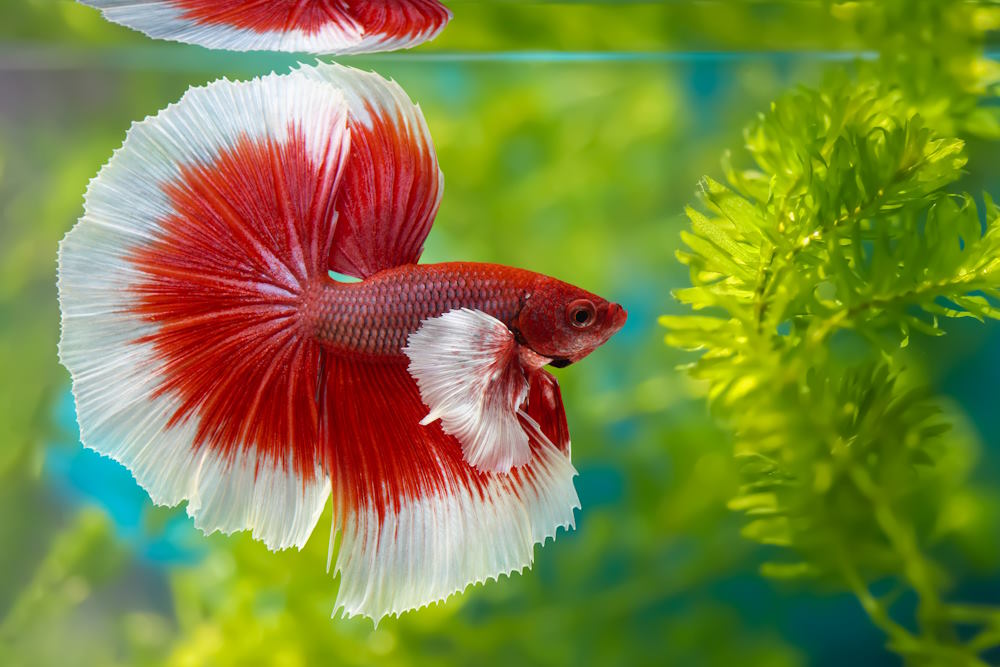Common Betta Fish Illness and How to avoid Them
Common Betta Fish Illness and How to avoid Them
Blog Article
The Ultimate Overview to Betta Fish Treatment: Important Tips for Keeping a Healthy And Balanced and Growing Aquarium Atmosphere
Efficient Betta fish treatment necessitates a thorough understanding of their one-of-a-kind ecological and physiological needs. Establishing an ideal aquarium begins with picking the right container dimension and ensuring ideal water problems, which are critical for the health and well-being of your Betta.
Choosing the Right Tank
Picking the appropriate tank for your Betta fish is vital to ensuring its wellness and well-being. Bettas flourish in settings that imitate their natural habitats, which commonly consist of calm, warm waters. A tank dimension of at least five gallons is suggested to offer sufficient swimming room, as smaller containers can bring about stress and anxiety and wellness issues for these dynamic fish.
When selecting a storage tank, take into consideration the tank's shape and purification system. Furthermore, a reputable filtering system is necessary to maintain water quality and minimize the regularity of water changes.
Temperature law is another essential factor; Bettas choose water temperatures between 76 ° F and 82 ° F. Buying an excellent heating unit will certainly make sure that the water remains within this variety, advertising a healthy and energetic way of living for your Betta. Providing suitable storage tank designs and hiding places will aid minimize stress and urge natural actions, better enhancing your Betta's health.
Keeping Water High Quality
Preserving optimum water quality is important for the wellness and long life of Betta fish. This requires normal tracking of numerous specifications, including temperature, pH, ammonia, nitrite, and nitrate degrees.
The pH level need to preferably fall in between 6.5 and 7.5. Routine screening making use of a dependable water testing kit can help guarantee these criteria stay within the proper arrays. Ammonia and nitrite degrees should constantly be at 0 ppm, as even reduced concentrations can be toxic to Betta fish. Nitrate levels should be kept under 20 ppm to avoid lasting health and wellness concerns.
Routine water adjustments are essential to keeping water quality. It is advised to transform 25-50% of the tank water weekly, depending on the tank dimension and equipping levels. Using a top notch water conditioner can help remove harmful chemicals from faucet water, ensuring a safe environment. Additionally, incorporating a robust filtration system can aid in maintaining water quality and quality, offering a much healthier environment for your Betta fish.
Suitable Feeding Practices
Offering a balanced diet plan is essential for the health and wellness and vivid coloration of Betta fish, as their nutritional needs play a substantial function in their total well-being. Betta fish are meat-eating by nature, needing a diet plan high in healthy protein. A mix of top quality pellets, frozen or real-time foods such as bloodworms, salt water shrimp, and daphnia can supply the essential nutrients they require.
Feed your Betta fish 2 to 3 times a day, using just what they can eat within a couple of minutes to stop overfeeding and maintain water top quality. Overfeeding can cause weight problems and health and wellness concerns, consisting of swim useful link bladder disease. It is crucial to check their dietary consumption and readjust part dimensions appropriately.
Along with healthy protein, a well balanced diet plan ought to consist of minerals and vitamins to promote optimum wellness. Think about supplementing their diet plan with top quality flakes or pellets specifically developed for Betta fish, as these frequently have essential ingredients.

Developing an Ideal Environment

Water quality is vital; keep a temperature level between 76 ° F and 82 ° F, and ensure the pH degree varies from 6 - betta fish.5 to 7.5. Routine water modifications of 25-50% weekly will assist maintain toxins at bay and ensure a stable atmosphere
Incorporating plants and hiding spots is essential, as Betta fish are naturally territorial and delight in having locations to explore and retreat. Live or silk plants, in addition to caves and ornaments, can create a revitalizing environment.

Normal Wellness Checkups
Conducting regular health and wellness check-ups is vital for making certain the wellness of Betta fish, as very early detection of possible issues can stop major health issue. These check-ups need to include an extensive evaluation of visit our website the fish's physical condition, habits, and ecological factors.
Begin by observing the Betta fish for any kind of indications of distress, such as lethargy, loss of hunger, or unusual swimming patterns. In addition, evaluate the fins and body for indications of staining, lesions, or fin rot, which can indicate infections or parasites. Regularly keeping an eye on the water high quality in the fish tank is similarly critical; criteria such as pH, ammonia, nitrite, and nitrate degrees ought to be preserved within optimum varieties to stop stress and anxiety and illness.
In addition, think about keeping a log of health and wellness observations and water high quality tests. This document learn this here now can assist in the recognition of patterns or recurring issues. If any type of irregularities are identified throughout the appointment, it is important to get in touch with a vet experienced in water pets. Timely treatment can make a considerable difference in the recuperation of your Betta fish, making sure a lengthy and healthy life in a well-kept aquarium setting.
Conclusion
In conclusion, successful Betta fish care pivots on producing and keeping an ideal aquarium environment. By complying with these standards, aquarists can promote the health and vibrancy of Betta fish, inevitably resulting in a thriving marine ecological community.
Report this page